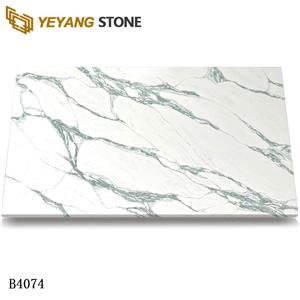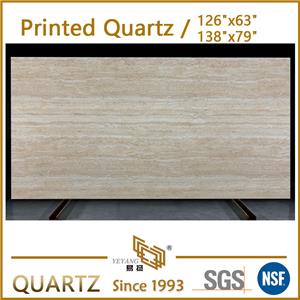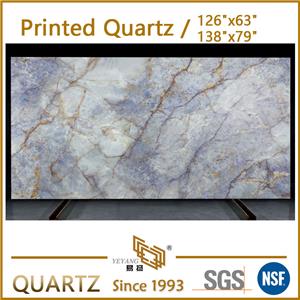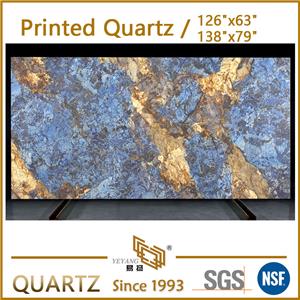How does the Tariff War Affect the Quartz Stone Market?
How does the Tariff War affect the Quartz Stone market?
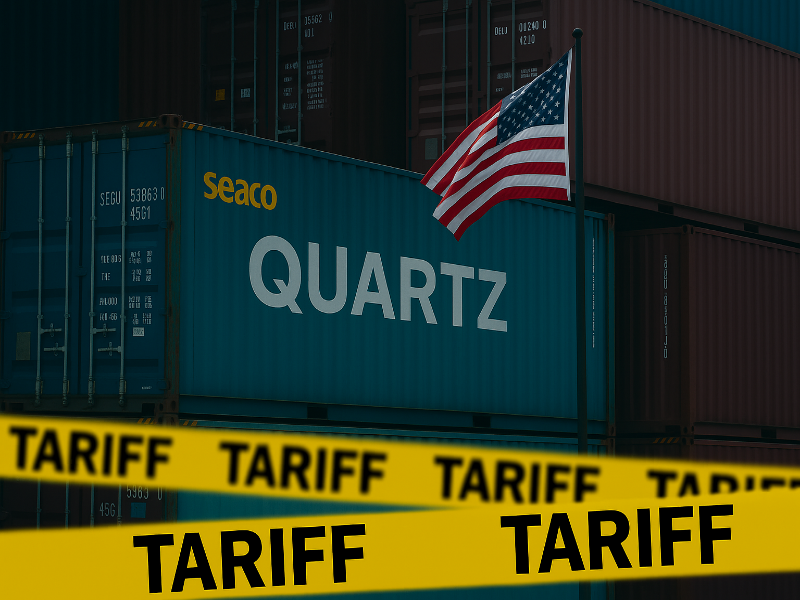
1. Price polarization under tariff transmission
The tariff war between China and the United States recently, which has had a profound impact on the quartz stone industry chain. From mining to the final installation of kitchen countertops, every link in the price transmission chain has become more sensitive and complex. First, tariffs directly pushed up the production costs of Chinese quartz slab suppliers, especially in the procurement and export of raw materials, where companies faced higher tariff barriers. In order to maintain market share, wholesalers in the United States have tried to lower purchase prices, resulting in obvious price polarization in the entire quartz stone market. Data shows that the price of high-end quartz stone products has increased by an average of 25%, while low-end products have seen a price drop of about 15%. This differentiation trend has been particularly evident in the past year.
2. Profound Changes in Consumer Behavior
Against the background of price fluctuations, consumer purchasing behavior has also changed significantly. For the home improvement market, more and more middle-class families are beginning to seek more cost-effective alternatives when facing rising quartz stone prices. Take Home Depot as an example. Its sales data in 2024 showed that the sales volume of laminate countertops increased by 12% year-on-year, which shows that many families tend to choose more affordable decoration materials under limited budget. At the same time, the luxury home customer group has adopted another strategy. They prefer to sign long-term supply contracts with reputable quartz countertop manufacturers to lock in prices and avoid greater fluctuations in the future. Long-term contracts not only ensure the stability of material supply, but also help high-end projects avoid budget out-of-control problems caused by soaring material costs.
3. Industry Self-help and Innovation Path
Facing the challenges brought by the tariff war, the entire quartz industry is also actively seeking ways to save itself. In order to effectively control costs, some suppliers began to form alliances to reduce international shipping costs through collective bargaining. According to statistics, through centralized shipping, alliance members have reduced logistics costs by an average of 18%, which has alleviated the pressure caused by tariff increases to a certain extent. In addition, innovative technology has also become an important way for the industry to save itself. More and more quartz countertop manufacturers have begun to invest in the research and development of recycled quartz raw materials. The new quartz plate products produced with 70% recycled materials can not only effectively avoid some tariff restrictions, but also comply with environmental protection trends and win market recognition. While maintaining stable performance, this new material also provides consumers with a more cost-effective choice, becoming a new growth point in the market.
4. Future Outlook: Challenges and Opportunities Coexist
It can be foreseen that under the background of the continued fermentation of the tariff war, the quartz stone industry will usher in a deep transformation driven by cost reconstruction, changes in consumer preferences and supply chain innovation. For every quartz countertop manufacturer in it, how to find new growth opportunities in the changing situation will become the key to determining future success or failure. As a pioneer in the industry, Yeyang Stone will continue to provide high-quality quartz products to global customers through innovation and supply chain optimization, ensuring that our customers can get the best price and highest quality in any market environment. Welcome to contact us to get the latest market trends and quartz prices.

